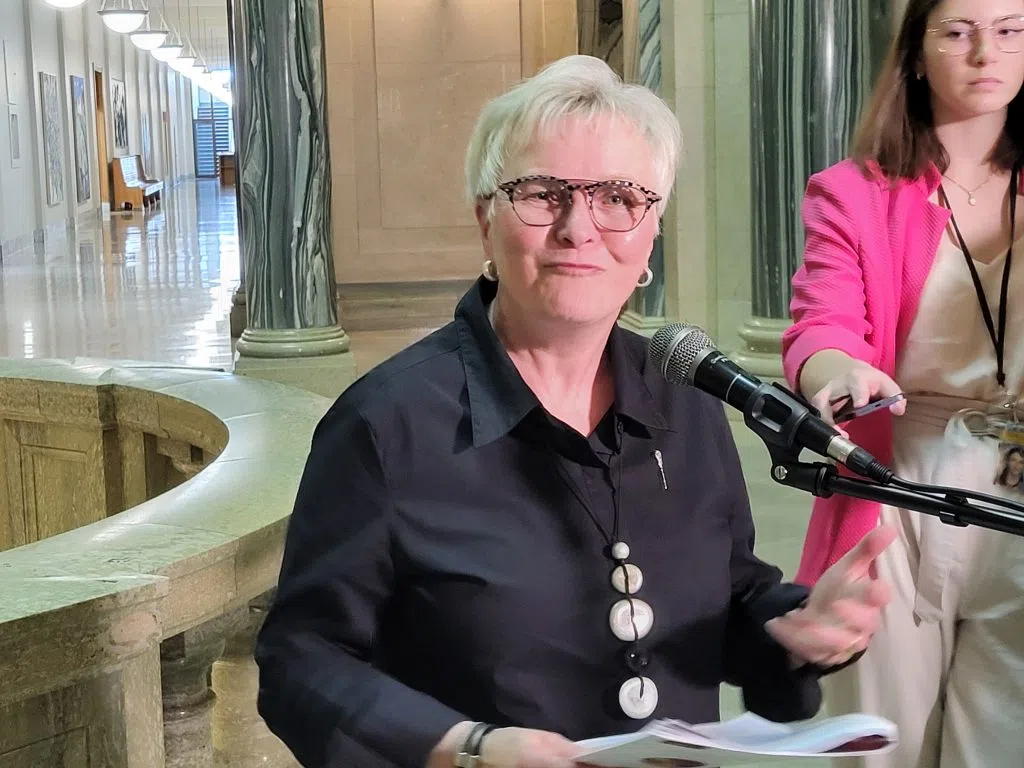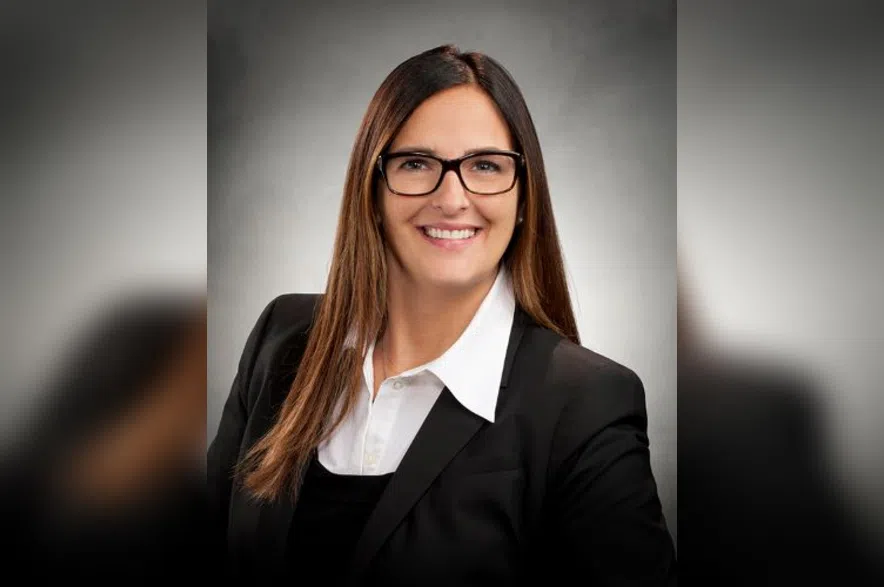A lack of access to mental health and addiction services is top of mind for the Saskatchewan advocate for children and youth.
In her annual report, Saskatchewan’s advocate for children and youth Lisa Broda said reports of mental health and addictions issues were five times higher in 2024 compared to 2020.
Read more:
- Sask. child advocate highlights high number of youth suicide attempts
- ‘Serious gaps:’ Children’s advocate finds problems in social services
- Provincial pronoun policy is discriminatory, says child and youth advocate
“We know that the young people are really struggling to have their basic needs met and certainly we know that the socioeconomic conditions that we are currently in today (mean) it’s become much more difficult for families and children,” Broda said.
The advocate’s office receives anywhere between 1,900-2,100 calls a year. Broda explains that most calls don’t come in with just one issue, they’re layered and complex.
She said these complex issues impact children at the highest of levels.
“It’s understandable that when needs aren’t being met, the physical and mental health of children is going to suffer,” she said. “Children and youth can’t live to their full potential.”
Basic needs not being met
One key issue impacting children is the difficulty of providing basic needs. This issue nearly tripled over 2023 figures.
“Food insecurity, housing difficulties and being able to buy clothes for their kids have been issues that we’ve seen this year,” she said.
“We have to really look at that critically and collectively work to see how services can be improved to deal with those matters.”
Calls of parents reporting a lack of financial support for their children and youth also doubled over 2023.
Accidental drug toxicity deaths
Broda said methamphetamine and fentanyl appear to pose the largest risk to young people.
In 2024, five youth between the ages of 18 and 20 died from combined drug toxicity. All five youth had methamphetamine in their system at the time of death, four had also injected a form of fentanyl.
The death of a sixth youth is suspected to be related to drug toxicity but official confirmation has not been given by the Coroner.
According to the report, older youth aren’t the only ones at risk when it comes to illicit drugs.
Over the last five years, Broda’s office has been notified of nine deaths and two critical injuries of children under the age of five who were exposed to drugs like methamphetamine and fentanyl.
She acknowledges that drug fatalities have been a growing concern for the general population. In March, Saskatoon firefighters were called to more than 350 overdoses.
A systemic review and investigation has been triggered to look into the issue.
In 2024, a total of 41 youth died, and the majority were First Nations or Métis. A handful of the deaths still have an undisclosed cause, five were by suicide.
Call for Saskatchewan’s Children & Youth Strategy
Broda said it is difficult to measure how the needs of children and youth are being met and called for the Children & Youth Strategy recommendation to be implemented.
The strategy would help identify benchmarks of child wellbeing, set immediate, medium and long-term goals, identify key actions to achieve those goals and develop indicators to measure results.
The government accepted the recommendation but Broda hasn’t seen any action despite advocating for the strategy for nearly two years.
“Having a coordinated strategy is the way to go,” Broda said.
Social Services working on recommendations
Minister of Social Services, Terry Jenson, said he’s proud of the work his ministry has done.
“The report outlines a number of initiatives that we have undertaken and completed. I’m very proud of my ministry for that work,” he said.
But Jenson said there is always work to be done to make improvements.
“I’m going to take what recommendations are in that report and sit down with my officials and my colleagues and work through those recommendations one by one, to the best of our ability,” he said.
When asked about the drug toxicity deaths, he said it is a major concern.
“Whenever we have an incident involving a child in care, we always get the details of what happened and then we sit down with ministry officials to determine what could be done differently,” he explained.
As for how to address this problem, Jenson said he will have to sit down with ministry officials and digest the report to determine the next steps.
Broda said things need to move quicker.
“It can’t be acceptable that we’re waiting for years for key and critical recommendations, especially around mental health and addictions,” she said.
She acknowledges that changes won’t happen overnight, but said mental health has been top of mind for the child’s advocate since the 2014 mental health action plan came out.

Joan Pratchler, NDP critic for childcare and early education, said people need access to food, childcare and financial aid to help grow strong children. (Daniel Reech/980 CJME)
NDP troubled by the report
Joan Pratchler, NDP critic for childcare and early education, said children in Saskatchewan deserve better.
“If they don’t have that foundation, how do they grow to their full, rich potential? This is not okay. This is saddening, it’s disheartening and it’s shameful,” she said.
Pratchler said she is concerned with children not having their basic needs met, an issue that tripled over 2023 numbers, according to the report. She also brings up concerns about safe living environments and financial difficulties when it comes to supporting children and youth.
“As a grandma, as a mom, as a former principal and as a nurse, this just breaks my heart to have this happen in our province,” Pratchler said.
She said the root causes need to be addressed.
— with files from 980 CJME’s Lisa Schick and Daniel Reech











